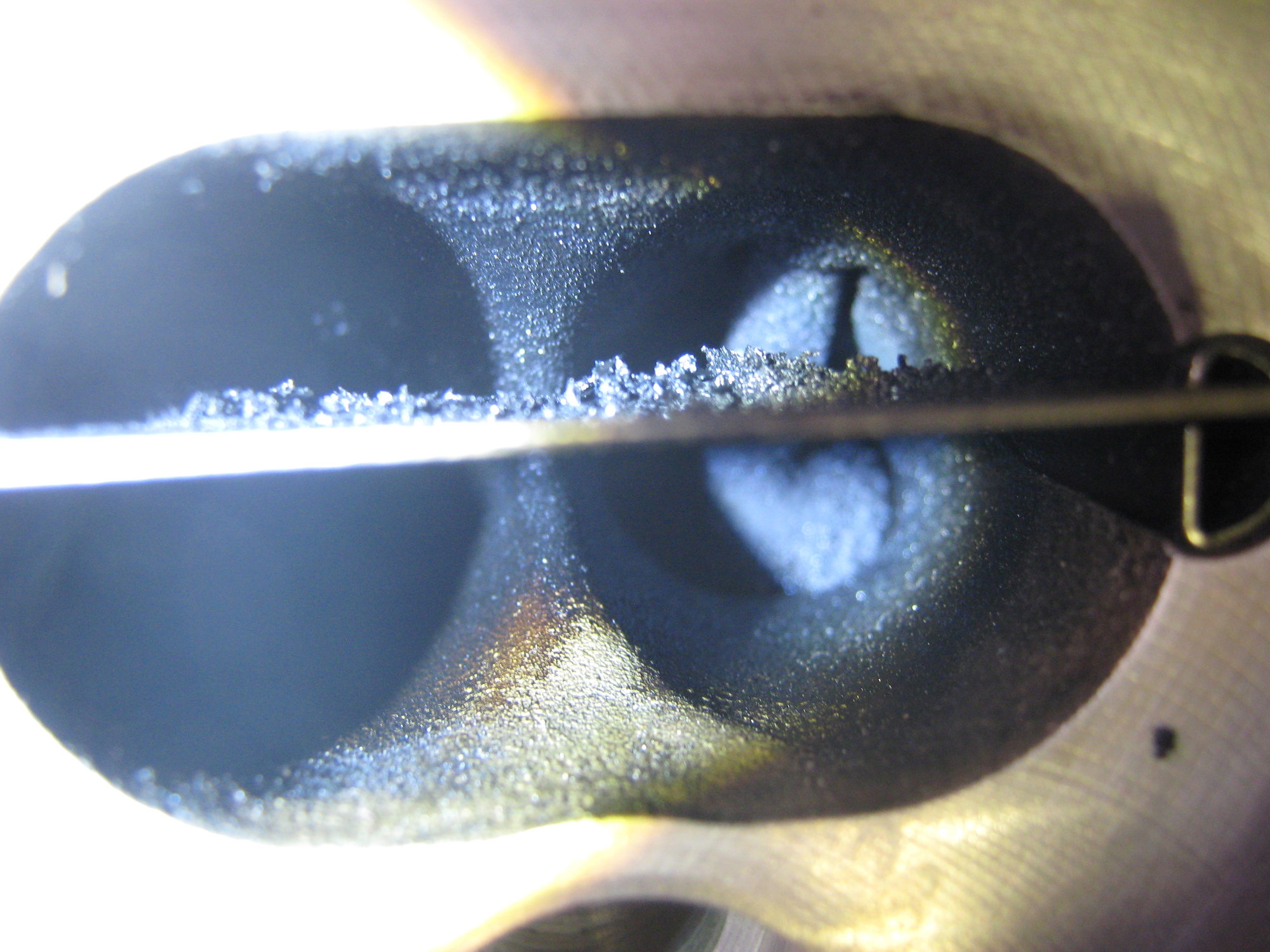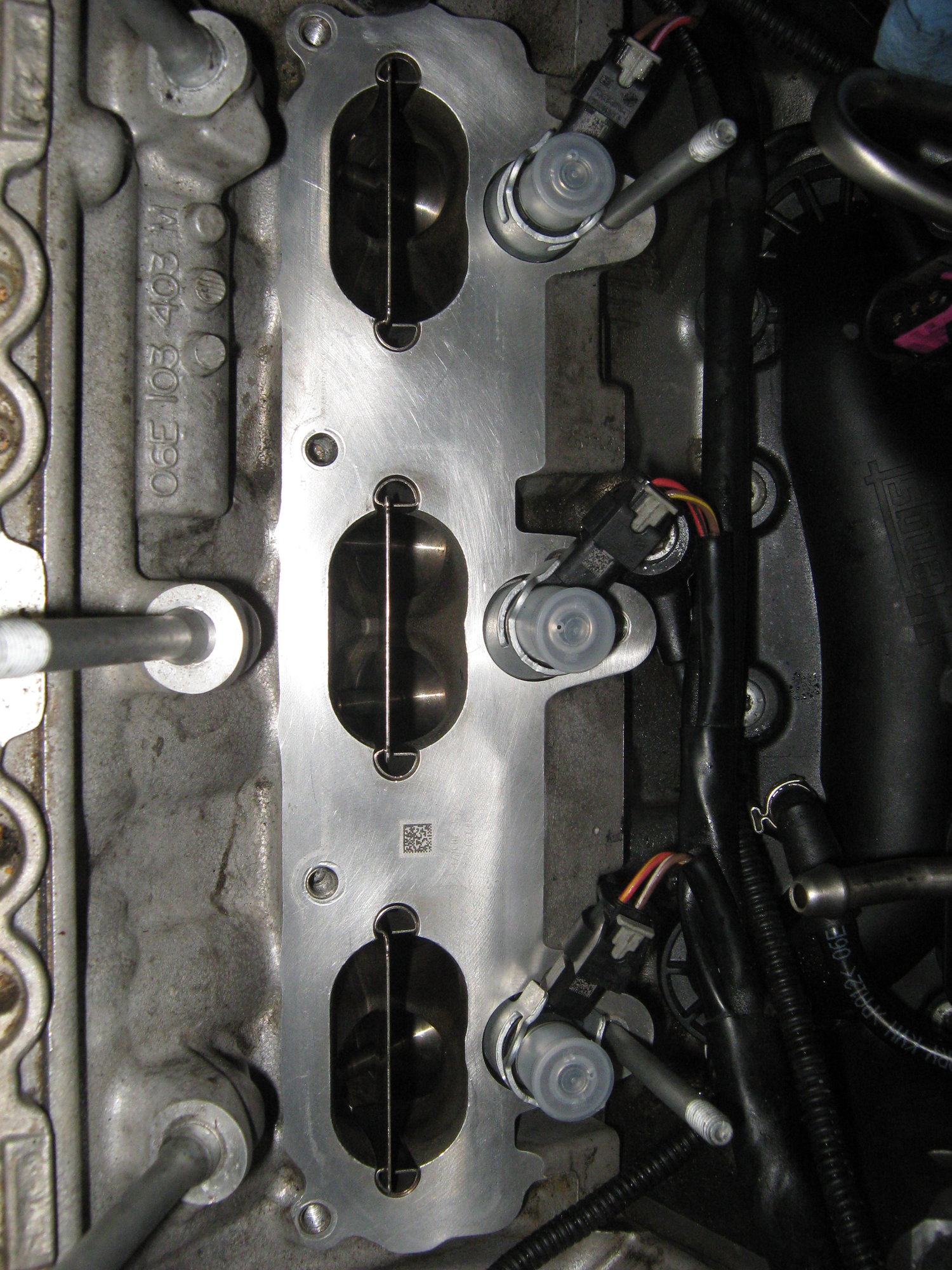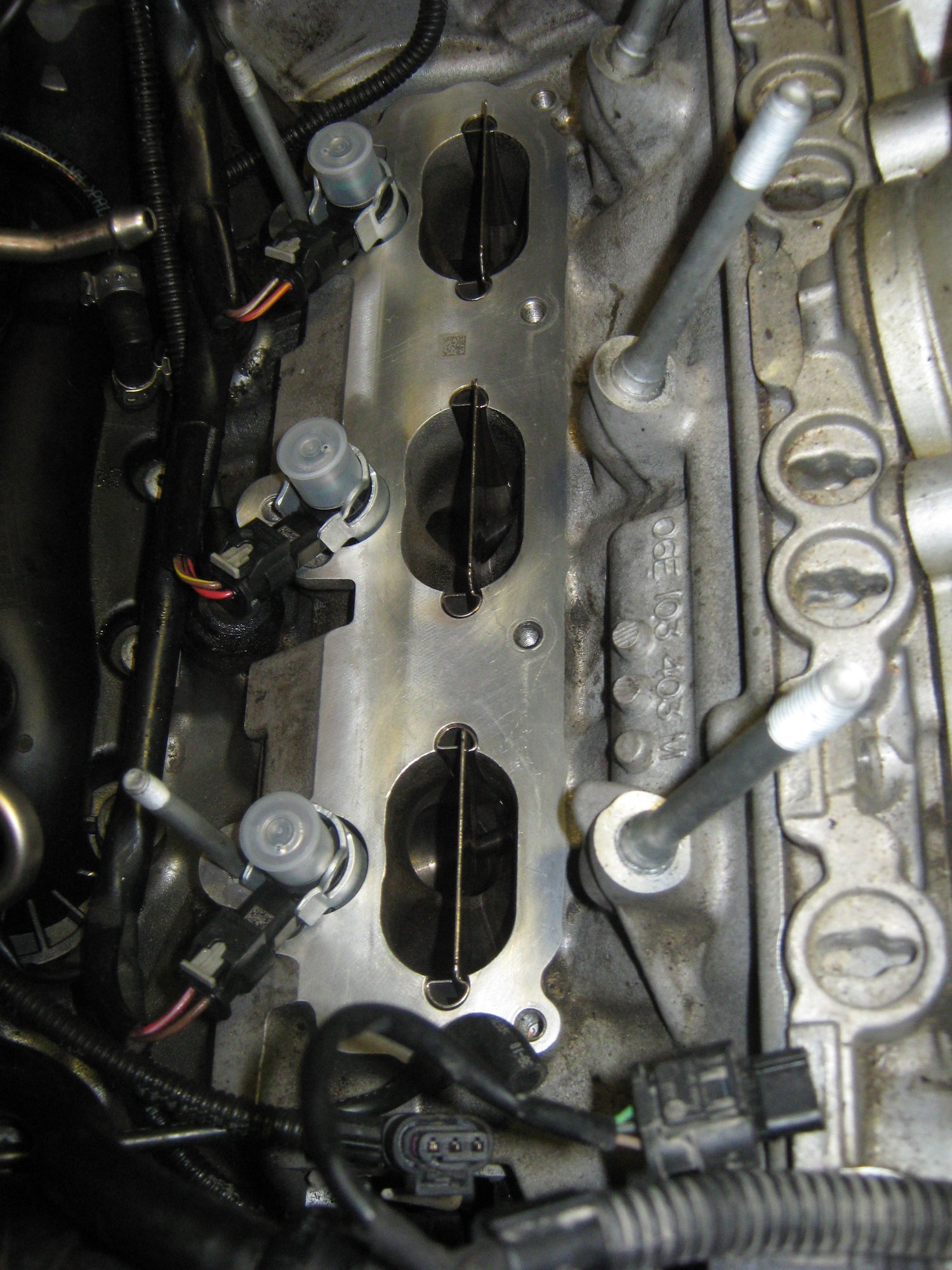3.0 Tfsi carbon build up: yes or no ?
#2
I too am wondering if the combination of multiport and direct injection is actually used with this engine and if it has limited the carbon build up issues with earlier DI engines.
#3
AudiWorld Member
Thread Starter
Join Date: Oct 2013
Location: north nj
Posts: 178
Likes: 0
Received 0 Likes
on
0 Posts
also yes it does buildup carbon just not as bad as other ealier audi engines.
#4
#5
#6
AudiWorld Super User
1) 3.0 TFSI engines (we're talking the supercharged 3.0L V6) does have dual injection in European motors only. The port fuel injector (x1) is introduced only in Europe to meet NOX emission standards.
2) This NOX restriction does not come into play in NA, so thus for us NA folks, the 3.0 TSI (we'll call it that for short) engine does NOT have a port fuel injector.
That doesn't mean there is a rampant issue with carbon buildup on these latest engines (because there isn't). Audi and Mercedes have finally figured out how to make an air oil separator that is half decent. It only took Audi 10 years to figure this out though.
I hope this finally buries this thread topic.
So in conclusion to the OP's question.
Yes, I'm sure there is carbon buildup due to the inherent nature of DI engines, but there is no systemic issue like before where there were problems with CEL or performance issues. In fact, on the M276 engine which is DI which is built by MB, I've now seen motors with 150,000 miles with barely any carbon buildup on the intake valves. Unfortunately for us folks, I've stepped away from Audi for a few years after a disaster of a RS4 ownership experience (and an A4), both B7s of course, but now carefully coming back to the D5 A8 because I do think based on the 3.0 TSI's performance lately that it appears Audi has fixed this issue.
#7
AudiWorld Senior Member





While I was replacing my injectors in my 2011 A6 3.0T at 55,000KM's I took advantage of the opportunity to perform the "Decarb Service" on the cylinder head intake ports. With injectors removed there is no compression so it is easy to turn the engine over by the crank pulley and I found one position that had 4 of 6 cylinder intake valves closed, so I blocked the other two cylinders intake ports with a rag and proceeded to fill the intake side of 4 closed cylinders with brake clean and used a variety of hand tools to remove tons of built up carbon. Then rotated crank to close all valves on the remaining two cylinders and block off the other 4 in order to perform the same cleaning process. I was shocked how much carbon was built up on the intake port walls and on the valve stems at this "low" mileage, and it was painfully clear over time even with top tier grade highest octane fuel and high quality spec synthetic oil that the cylinder head ports were slowly being chocked off with carbon buildup. It was a few hours of filthy work and when done the intake ports and back of valves including stems looked brand new. Be careful not to scratch the port walls as it is aluminum. With the ports closing in on themselves due to accumulating carbon buildup it increasingly disturbs the designed "swirl effect" of air entering the combustion chamber which slowly over time will continually reduce engine power and reduce fuel efficiency. The magic number is around 100,000KM when the carbon buildup becomes so bad that the first symptom will appear which is rough idle after cold engine start, and idle smooths out while engine warms up.
Anyone who thinks the 3.0T is immune to intake carbon buildup should remove their supercharger and intake runners and inspect the intake ports for yourself. The issue is no matter how good the PCV / Oil Separator does it's job, there is always going to be a trace amount of fine oil mist that passes through back into the intake and the heat of the valves and intake ports cook off the liquid and what is left behind inside the intake ports is slowly accumulating carbon deposits. Some things are different in Europe, but in North America everyone needs to accept the fact that Audi / VW DI Engines from the beginning of DI introduction to at least 2011 including the 3.0T require a "Decarb Service" as part of long term Regular Maintenance.
I am curious if the brand new models still have this issue?
Last edited by AudiAllTheWay; 11-20-2018 at 01:24 PM.
Trending Topics
#8
Good post and pics - do you have any more pics or a write up on what you did to remove these parts and replacements that you did. For instance I see you have some yellow plastic cap or something in the coolant hoses? Did they work well and did you buy those or are they simply bottle caps.. those types of tips/tricks are always appreciated by other DIYs like myself who till be doing similar work hopefully next spring.
#9
i have a 2014 a6 3.0t with 56000 miles. just had to have the intake manifold gasket upper cleaned. carbon build up was very bad. sad thing is it is not covered under warranty. Audi claims my vehicle is one of the recalls or extended warranty on it. But it has the problem. very expensive to have cleaned. labor was $2800.00. total bill was $3800.00
#10
AudiWorld Super User





While I was replacing my injectors in my 2011 A6 3.0T at 55,000KM's I took advantage of the opportunity to perform the "Decarb Service" on the cylinder head intake ports. With injectors removed there is no compression so it is easy to turn the engine over by the crank pulley and I found one position that had 4 of 6 cylinder intake valves closed, so I blocked the other two cylinders intake ports with a rag and proceeded to fill the intake side of 4 closed cylinders with brake clean and used a variety of hand tools to remove tons of built up carbon. Then rotated crank to close all valves on the remaining two cylinders and block off the other 4 in order to perform the same cleaning process. I was shocked how much carbon was built up on the intake port walls and on the valve stems at this "low" mileage, and it was painfully clear over time even with top tier grade highest octane fuel and high quality spec synthetic oil that the cylinder head ports were slowly being chocked off with carbon buildup. It was a few hours of filthy work and when done the intake ports and back of valves including stems looked brand new. Be careful not to scratch the port walls as it is aluminum. With the ports closing in on themselves due to accumulating carbon buildup it increasingly disturbs the designed "swirl effect" of air entering the combustion chamber which slowly over time will continually reduce engine power and reduce fuel efficiency. The magic number is around 100,000KM when the carbon buildup becomes so bad that the first symptom will appear which is rough idle after cold engine start, and idle smooths out while engine warms up.
Anyone who thinks the 3.0T is immune to intake carbon buildup should remove their supercharger and intake runners and inspect the intake ports for yourself. The issue is no matter how good the PCV / Oil Separator does it's job, there is always going to be a trace amount of fine oil mist that passes through back into the intake and the heat of the valves and intake ports cook off the liquid and what is left behind inside the intake ports is slowly accumulating carbon deposits. Some things are different in Europe, but in North America everyone needs to accept the fact that Audi / VW DI Engines from the beginning of DI introduction to at least 2011 including the 3.0T require a "Decarb Service" as part of long term Regular Maintenance.
I am curious if the brand new models still have this issue?
Thread
Thread Starter
Forum
Replies
Last Post
ECS Tuning-Audi
A4 (B7 Platform) Discussion
0
07-11-2018 11:15 AM
LR95S97
Audi A5 / S5 / RS5 Coupe & Cabrio (B8)
8
10-20-2015 10:27 AM
drvai
Audi A5 / S5 / RS5 Coupe & Cabrio (B8)
0
12-16-2013 02:14 PM





